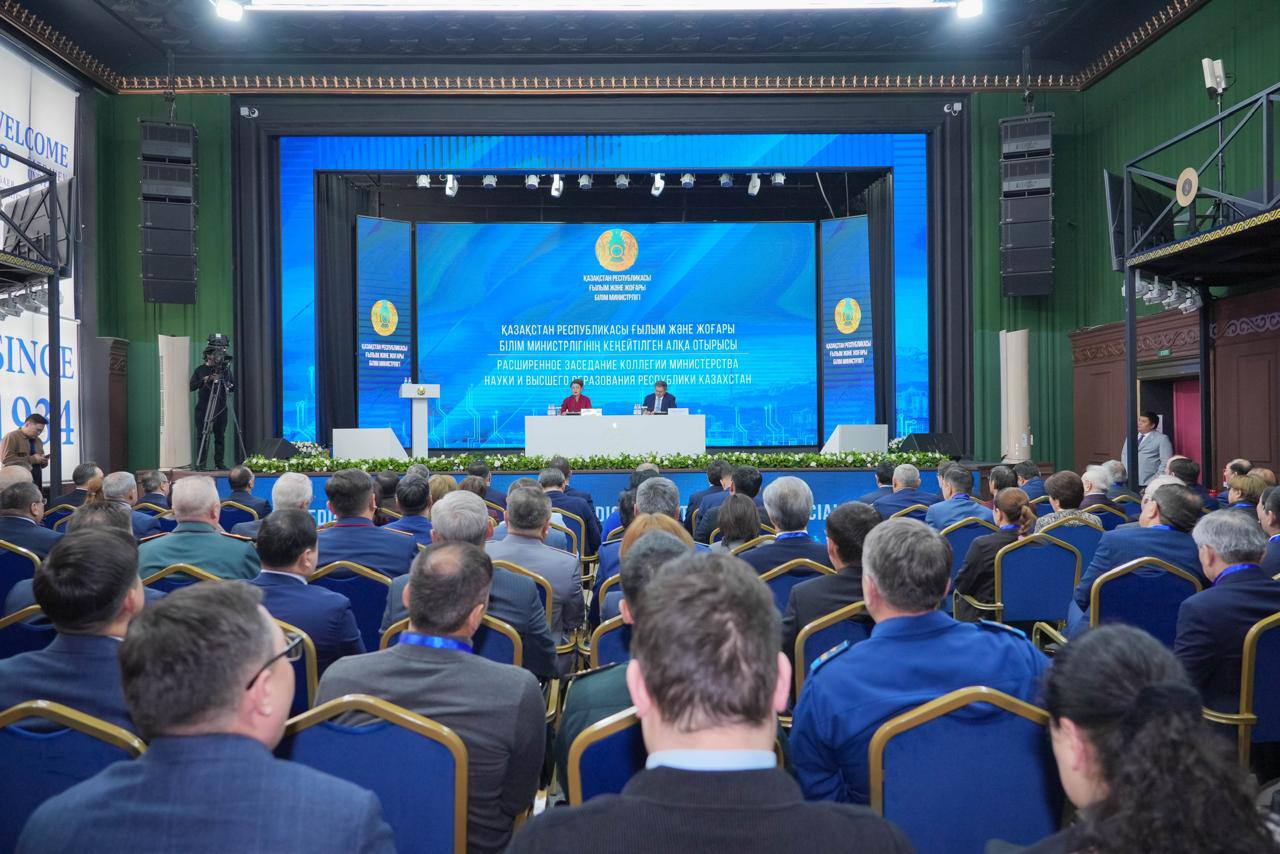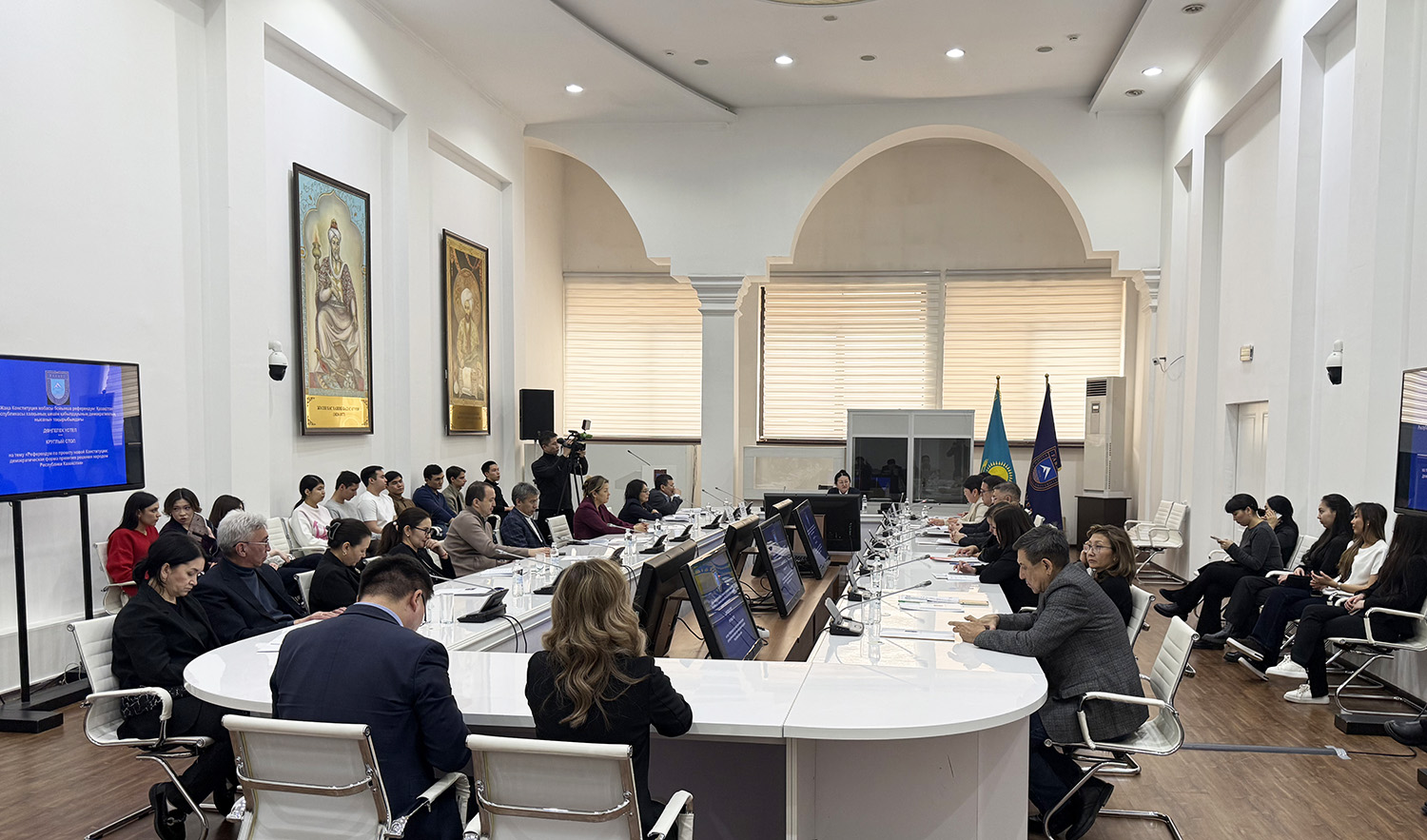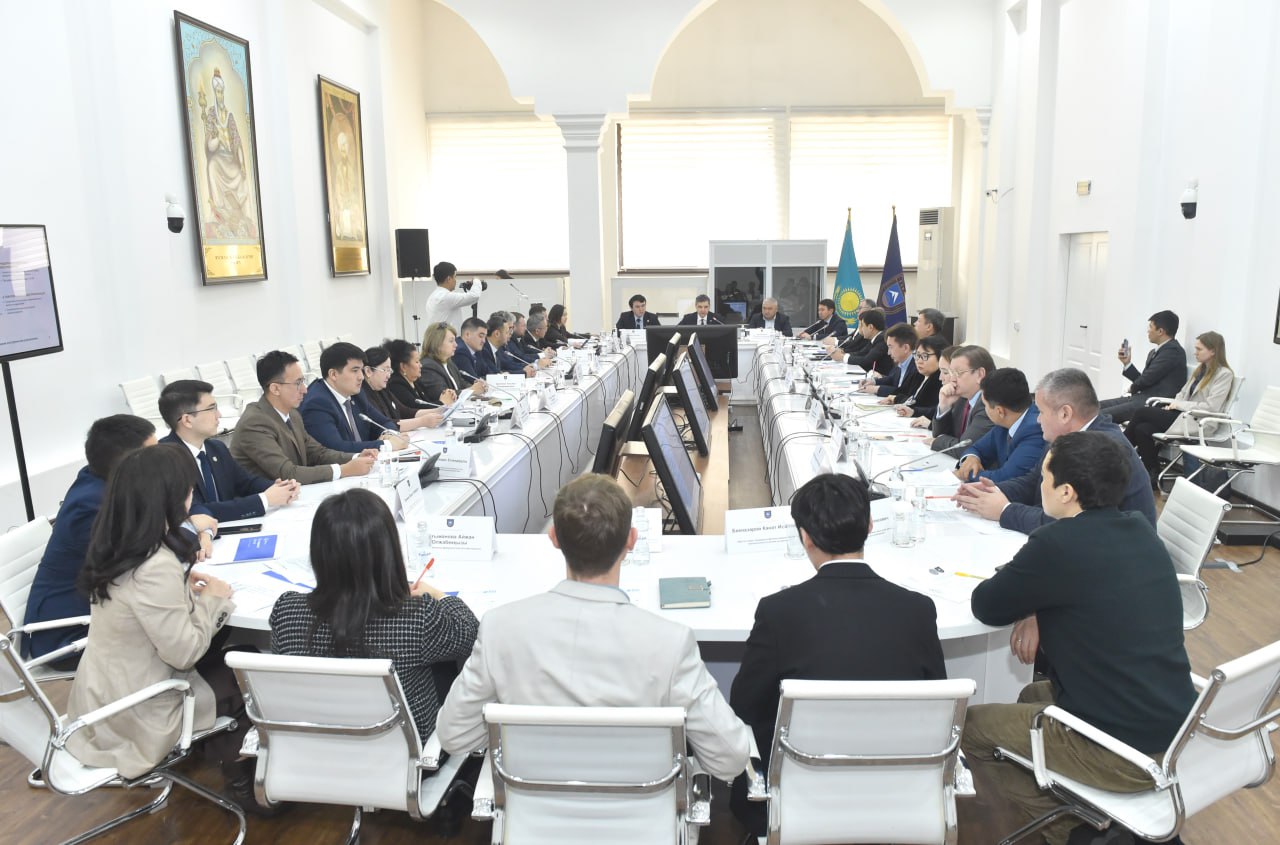- Main
- News
- Round Table on the Topic: "Restoration of Degraded Landscapes within SDG 15: Conservation of Terrestrial Ecosystems"
Round Table on the Topic: "Restoration of Degraded Landscapes within SDG 15: Conservation of Terrestrial Ecosystems"
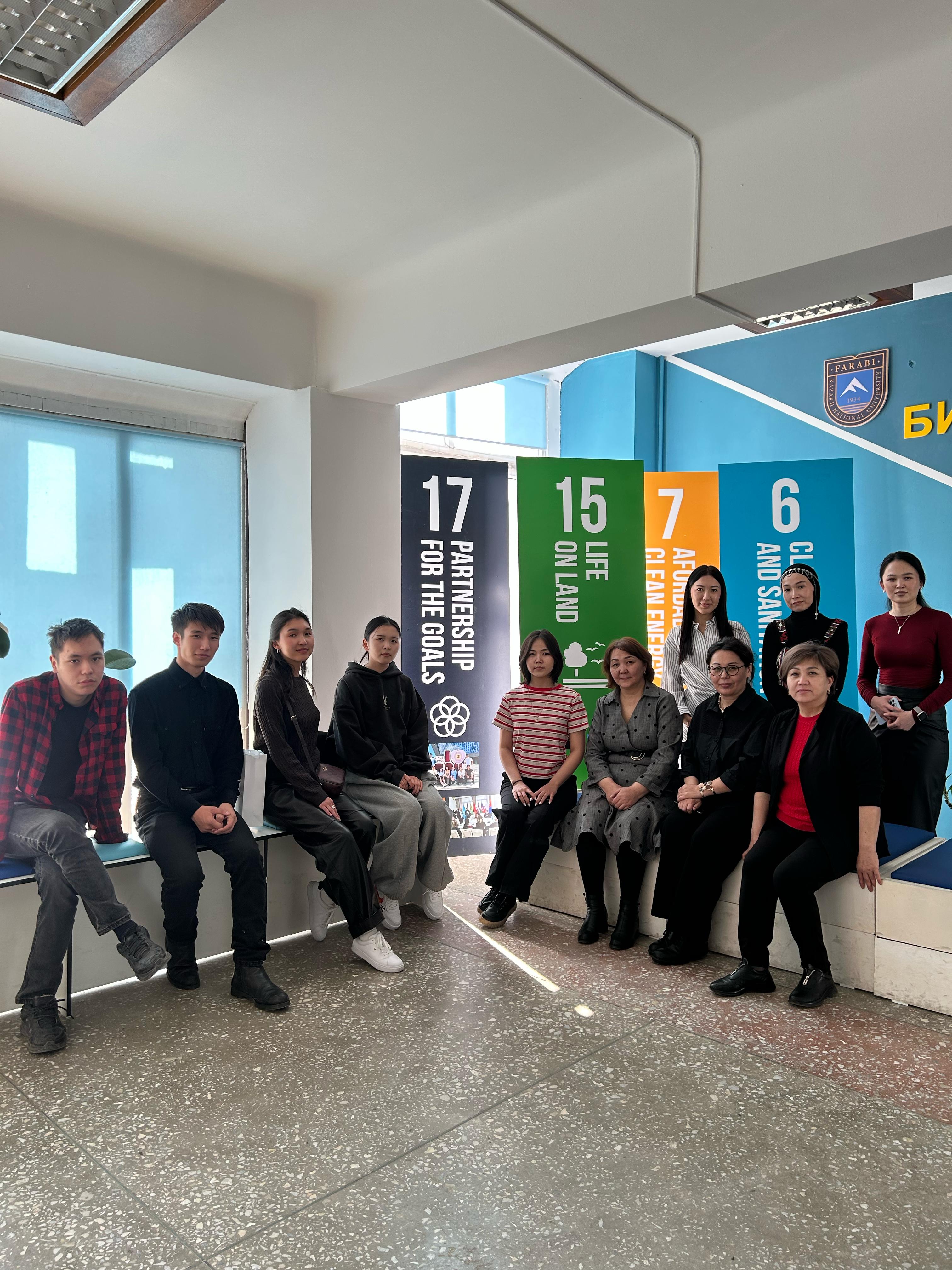
On March 19, 2025, a round table was held at the Faculty of Biology and Biotechnology of KazNU named after al-Farabi, dedicated to the current topic: "Restoration of degraded landscapes and preservation of dry ecosystems" in the context of the Sustainable Development Goals (SDGs). The purpose of the round table was to discuss key aspects of the ecosystem: soil restoration, the role of greening and innovative approaches to solving environmental problems.
Event Participants, teachers of the Biotechnology Department: Mukhataeva K.A, Ultanbekova G. D., Mamytova N.S. 3rd-year undergraduate students majoring in Biotechnology and Microbiology (Russian and English groups).1st-year master's students majoring in Biotechnology (Kazakh group).
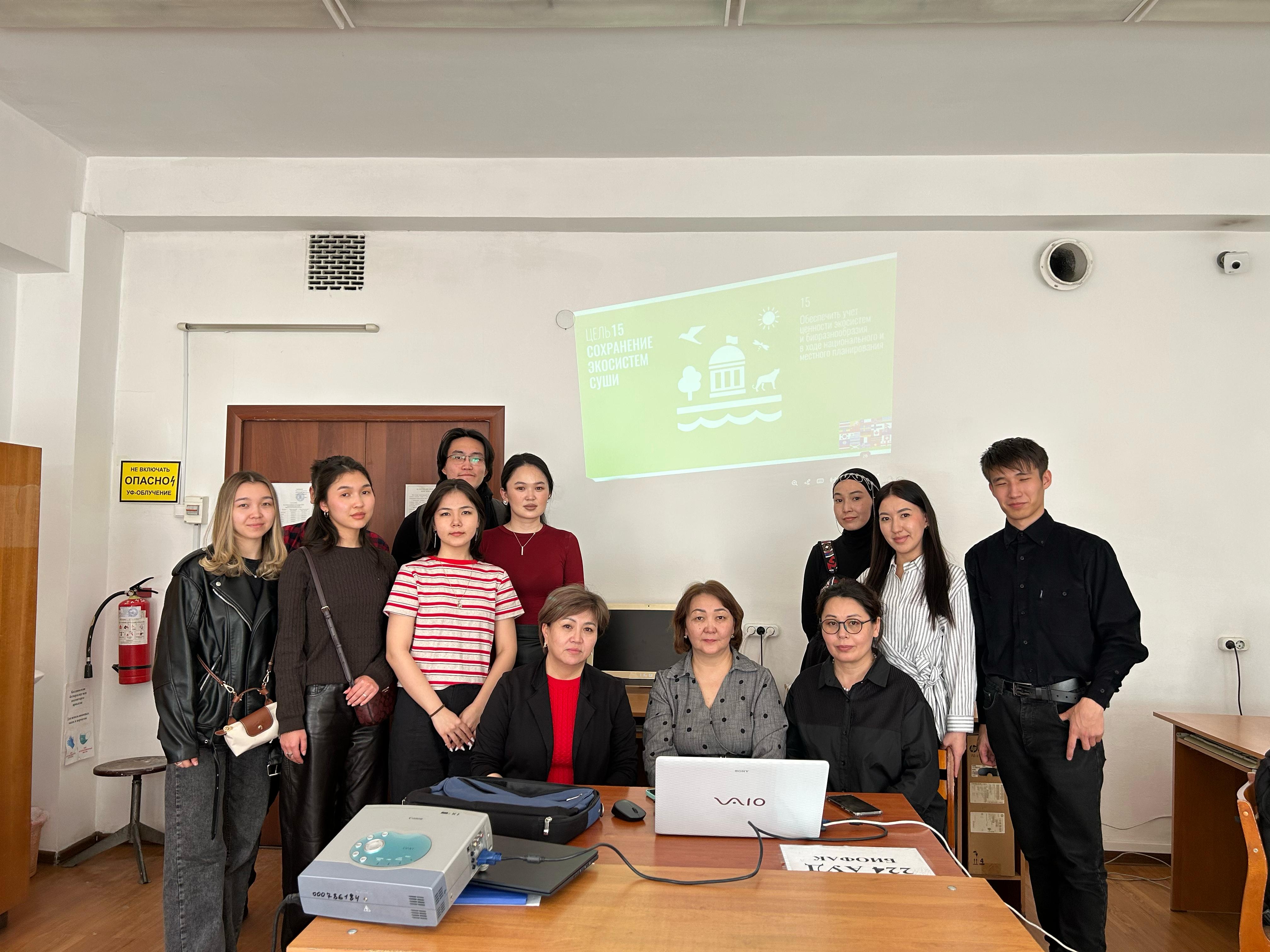
Main Discussion Topics: Greening as a Tool for Ecosystem Restoration. Participants emphasized the importance of greening for improving the ecological state of the environment. Examples of large-scale international projects, such as the "Great Green Wall" in Africa and the "Green Wall of China," were reviewed, show casing successful experiences in combating desertification and restoring degraded lands. Special attention was given to Kazakhstan's initiatives, particularly President Kassym-Jomart Tokayev's directive to plant 2 billion trees in forest areas and 15 million trees in settlements. To date, 975 million trees have been planted, marking a significant step toward achieving the set goals.
The Role of Microbiotain Ecosystem Restoration.
Students and postgraduates shared the results of their research on the interaction between plants and microorganisms. The key role of rhizobacteria, which contribute to nitrogen fixation, the synthesis of phytohormones and the protection of plants from pathogens, was noted. Biodegradation processes were also discussed, during which microorganisms such as Pseudomonas and Bacillus, which decompose toxic substances, contribute to soil detoxification.
Innovative Approaches to Greening.
Participants reviewed modern technologies for planting and maintaining green spaces. Effective methods for transporting and storing planting materials, as well as innovative planting technologies applicable in the Turkestan region and other areas of Kazakhstan, were proposed.
Youth Contribution to Achieving the SDGs.
Students and teachers emphasized the importance of involving young people in environmental projects. Participation in volunteer greening campaigns, increasing environmental literacy, and disseminating knowledge about the importance of preserving ecosystems is everyone’s contribution to the sustainable development of society.
Conclusion: The round table became an important platform for exchanging knowledge and experience in the field of ecosystem restoration. Participants came to the conclusion that the preservation and restoration of natural landscapes is not only the task of the state, but also the responsibility of every citizen. Young people, as future leaders, play a key role in promoting environmental initiatives and achieving the Sustainable Development Goals.
Let's take a step towards a healthy planet together - our contribution today determines the quality of life of future generations!
